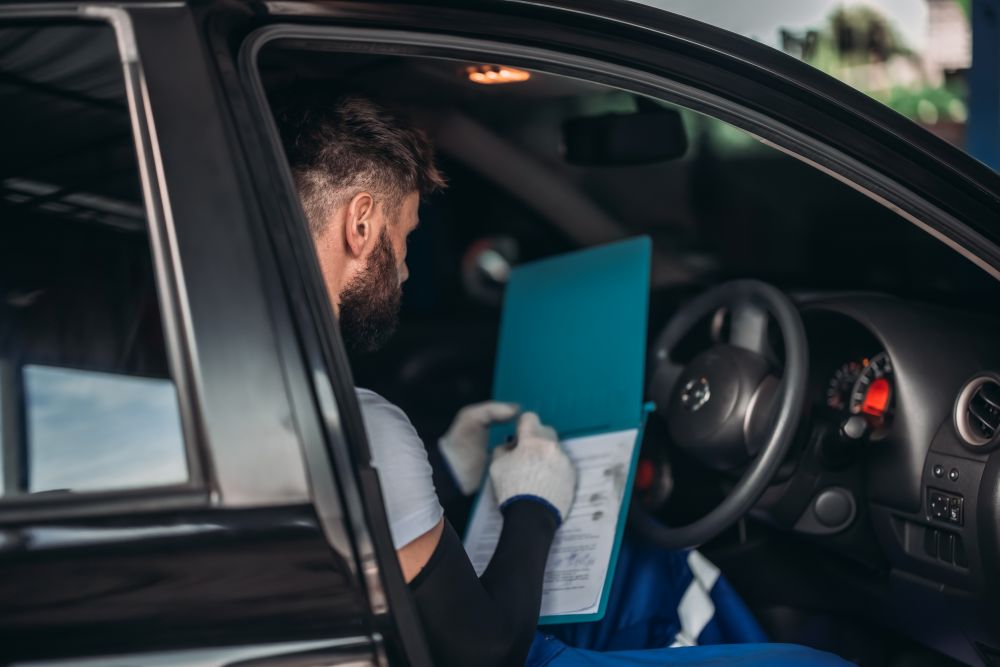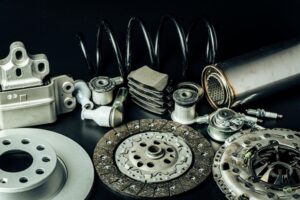Modern cars require considerable amounts of electricity to function efficiently, from amenities like radios and heated seats to safety features such as headlights. Cold temperatures compound this burden by slowing chemical reactions in batteries, which in turn decreases alternator performance and creates wiring issues. Regular maintenance and inspection are the best ways to avoid electrical problems. A bumper-to-bumper warranty may provide some peace of mind against significant repair costs.
Common Electrical Issues in Cars
Electrical systems in vehicles provide essential functionality, ranging from entertainment features like radios and power windows to safety features like antilock brakes. Unfortunately, however, electrical issues can arise that require immediate attention from its operator.
To help manage the high repair costs associated with these issues, many extended warranty providers offer plans specifically designed to protect your car’s electrical system. Plus, the warranty claim process is straightforward, too.
1. Battery Issues
A battery is the main component of an electric vehicle and comes backed with numerous aftermarket warranties that offer additional protection. As each battery warranty can differ significantly in terms of coverage, consumers must understand exactly what their plan offers.
Batteries store chemical energy and convert it to electrical energy. How? It works through multiple electrochemical cells connected by electrolytes. Once charged up again, its chemical reactions convert this stored energy back to electrical power through another series of reactions.
Most electric vehicle batteries are typically covered by their manufacturer’s warranty for up to eight years or 100,000 miles, providing coverage against defects, such as battery degradation.
2. Power Steering
Power steering is one of the modern marvels that allows drivers to easily handle large 4x4s through tight parking situations. This technology reduces the effort required to turn wheels from side to side while increasing precision during low-speed maneuvering.
There are two primary types of power steering: Hydraulic Power Steering (HPS) and Electric Power Steering (EPS). HPS systems utilize a hydraulic pump powered by your engine to distribute hydraulic fluid through hydraulic lines, which increases steering wheel force. An electric motor then amplifies this force further, adapting accordingly.
Both systems present unique issues: motor failure is possible, or there could be issues with torque sensors (which monitor the amount of force applied to the wheel) and vehicle speed sensors (which regulate the level of assistance provided).
3. Brakes
Many extended auto warranty providers offer plans that include brake coverage, ranging from basic powertrain warranties to comprehensive bumper-to-bumper plans. Drivers must understand how brakes work and maintain regular inspections.
Brakes use frictional forces between surfaces pressed together to convert kinetic energy to heat, and then use this energy to decelerate or stop a car. Brake pads and rotors play key roles in accomplishing this process.
Pressuring the brake pedal releases pressurized fluid from a master cylinder into brake calipers that squeeze pads against rotors (or discs). This creates friction that slows and eventually stops your vehicle.
4. Power Windows
Power windows can be one of the more useful car features, but when they stop functioning correctly, they can become a hassle. Luckily, there are steps you can take to protect against problems with your power windows.
As with many electrical components, power windows can become susceptible to corrosion due to moisture. Ensuring that your battery terminals and cables remain dry will help ensure smooth-running power windows.
5. Lighting
Burning smells coming from your vehicle or an engine sparking or smoking are signs of electrical issues, and should be treated immediately, or risk becoming life-threatening. Overheated components are most often the source, typically due to loose wiring, overloaded circuits, or worn-out components that produce excess heat.
As daylight hours diminish, headlight brightness and alignment become even more critical for road safety. Protecting the electrical system with an extended car warranty reduces the chances of unexpected repair bills. Many extended car warranties offer various levels of coverage details.
6. Alternator Problems
Alternator failure is an often-recurring electrical problem. This occurs because of damaged regulators or rectifiers, worn bearings, or corrosion in cables. When this happens, it not only creates inconvenience but can even result in dead batteries and more serious electrical issues.
Your Alternator may need replacing when the headlights or interior lights seem dimmer than usual. The burning rubber smell is also an indicator that something is wrong. When this occurs, it should also be considered an electrical problem.
7. Electrical Components & Connection Issues
Modern cars contain complex electrical systems designed to make driving simpler, safer, and more enjoyable. But, these same systems can sometimes present issues due to worn parts or general wear-and-tear. One way to mitigate any such problems is through routine maintenance and inspections of batteries, wiring harnesses, and sensitive electronics.
Wiring can become damaged over time due to heat, rodent damage, and corrosion. This causes intermittent power failures, warning lights, or other unusual behavior from your car. If you detect a burning smell or see sparks, professional inspection is highly recommended.
8. Sensor Failures
Modern cars rely on various sensors to regulate vehicle functions and monitor component statuses; however, these sensors are vulnerable to failure for multiple reasons.
Failing or damaged sensors can cause numerous electrical problems, from flickering lights and dead batteries to complete power loss in specific systems. Failed sensors may also become compromised through contamination from dirt, dust, and rain that obstructs their functionality and leads to corrosion over time.
Are Extended Car Warranties Worth It?
In short, extended car warranties are worth the investment. Electrical systems are often covered under car warranties. While some plans provide full coverage for specific parts, others are limited to those parts only. Here’s what an extended warranty covers for electrical systems.
Battery Coverage & Extended Warranty
Most standard 12V batteries are covered under either their factory warranty or an extended battery protection plan. This covers an initial fixed product term and the number of cycles before pro-rated coverage begins.
Hybrid and electric vehicle batteries typically come with more coverage, like eight years or 100,000 miles, with minimum capacity guarantees of 70 percent.
Extended Car Warranties Cover Alternator
Your Alternator is responsible for charging your battery and powering the electrical system in your car. Unfortunately, aftermarket warranties typically don’t cover this component. However, you may be able to secure coverage by upgrading to an extended plan, which covers this element.
A vehicle service contract offers protection from costly repair bills that would otherwise eat into savings. Reliable warranty providers provide a range of auto protection plans, from basic powertrain coverage to comprehensive bumper-to-bumper coverage that protects even critical electrical components.
Starter Motor With Car Warranty Coverage
Starter motors contain multiple moving parts that, even with minor problems, may make starting an engine more challenging. Faulty switches or relays could further impede its functionality and start-up time.
Extended warranties typically offer good coverage, ranging from basic powertrain protection to more comprehensive plans that provide bumper-to-bumper protection. Exact coverage for electrical systems depends on each plan. You can typically count on extended warranties as a financial safeguard against repair costs associated with common electrical problems.
Conclusion
While regular maintenance and inspections are your first line of defense, unexpected failures can still result in substantial repair bills. That’s where aftermarket warranties step in. In short, investing in the best extended car warranty coverage today means fewer surprises tomorrow, and more confidence every time you turn the key.
Protect Your Vehicle with Nova Warranty’s Extended Coverage
Let’s face it: unexpected repairs can quickly turn that freedom into frustration. That’s where Nova Warranty comes in. Our auto protection plans are designed to protect you from those costly surprises. What makes us different? Trust. With 363 Google reviews and an impressive 4.9-star rating, Nova Warranty is a name drivers rely on nationwide. Contact Us now!






